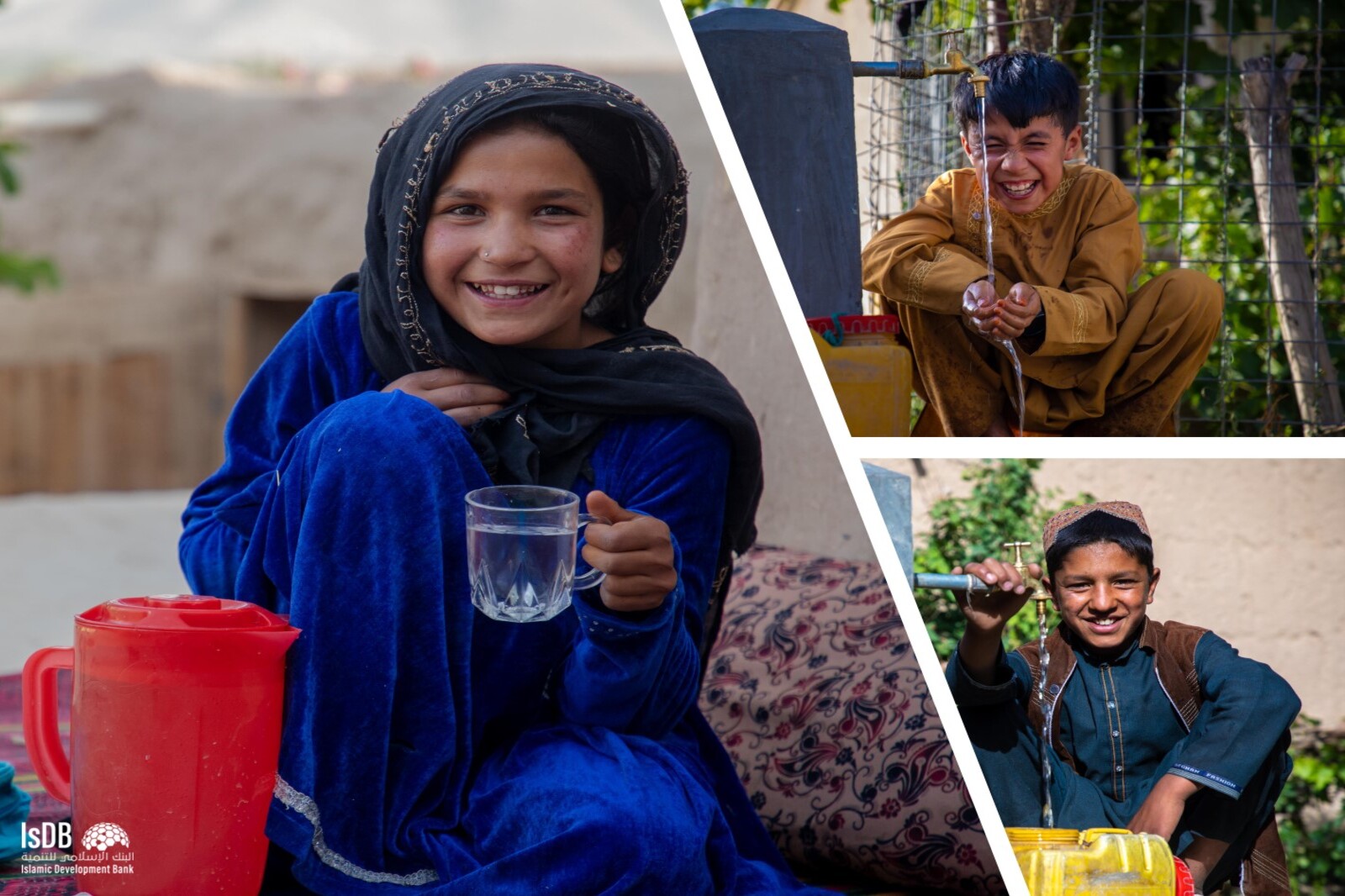
IsDB-AHTF, UNICEF Partnership Brings Safe Water to Rural Communities in Afghanistan through KSRelief Funding
Jeddah, Kingdom of Saudi Arabia, August 2024 - UNICEF and the Afghanistan Humanitarian Trust Fund (AHTF) – mandated by the Islamic Development Bank (IsDB) - have announced the completion of the project "Climate-Resilient and Sustainable Water Supply Services in Remote Rural Communities" in Afghanistan.
The US$ 2 million initiative, funded by the King Salman Humanitarian Aid and Relief Center and implemented in partnership with AHTF and UNICEF, provided more than 30,000 people in 18 remote communities with climate-friendly, sustainable water supply systems in Paktia and Logar provinces.
Water, sanitation, and hygiene (WASH) services constitute basic needs for children and families. Safe water and sanitation facilities, paired with good hygiene practices like handwashing with soap, are key to preventing communicable diseases. However, access to safe water in Afghanistan is limited.
According to UNICEF’s 2022-23 Multiple Indicator Cluster Survey (MICS), around 27 percent of the population in Afghanistan does not have access to safe drinking water. Nearly 44 per cent lack basic sanitation services and only 24 percent of households have all three: basic drinking water, sanitation and hygiene services.
Construction for these 18 new water supply systems was led by Community Development Councils and will be handed over to the communities for ongoing operation and maintenance.
UNICEF-supported community mobilizers also worked with these 18 communities to orient them on key aspects of the water supply projects, and to develop a shared understanding of risks that may affect the sustainability of water supply systems. The communities have activated water user committees (WUCs) responsible for the operation and maintenance of the water supply systems.
Mechanics have also been trained and equipped with tools to maintain and repair the water systems in all 18 communities. UNICEF has supported community mobilizers, the WUCs, and mechanics to develop operation and maintenance plans and set tariffs for household water consumption.
AHTF support to communities in Afghanistan continues, with additional water supply systems under construction for 64,000 people in 32 remote communities in northern Faryab, southern Helmand, and western Farah provinces.
Afghanistan Humanitarian Trust Fund is managed by the Islamic Development Bank and serves as a vehicle to channel humanitarian assistance, address basic needs, and promote self-reliance and development in Afghanistan. It was launched following a collective decision by the Council of Foreign Ministers of the Organization of Islamic Cooperation (OIC) at its 17th Extraordinary Session held on 19 December 2021 in Islamabad, Pakistan.
